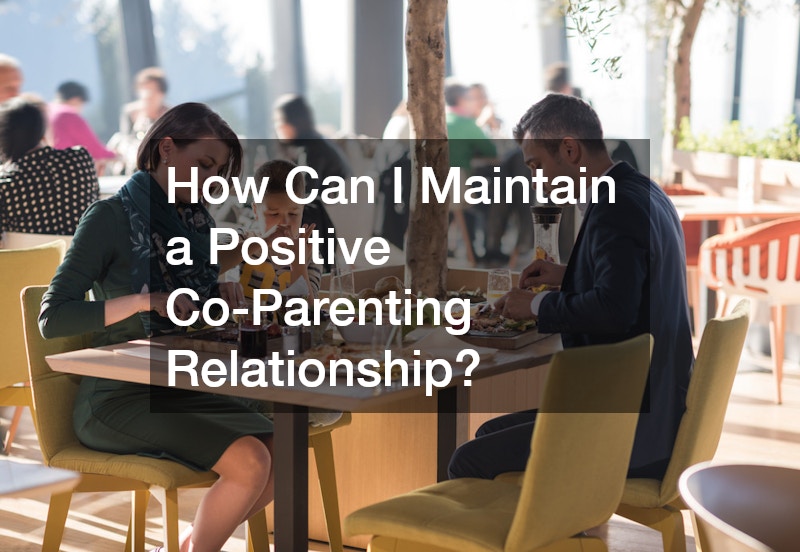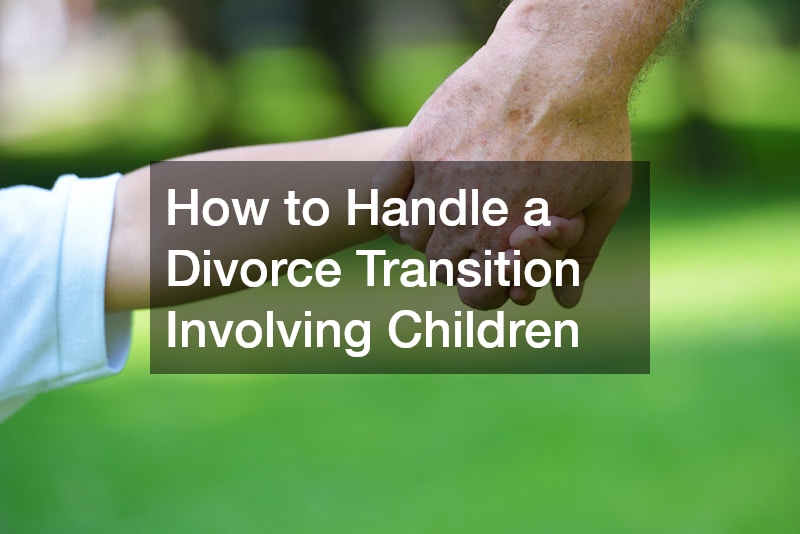
The divorce transition is a challenging process that impacts both the couple involved and their children and extended family. Navigating this transition requires careful consideration of various aspects, from emotional support to legal proceedings. Divorce lawyers play a crucial role in guiding parents through this process, ensuring that all legal obligations are met while prioritizing the well-being of the children. The emotional toll of divorce can be overwhelming, but with the right support systems in place, it is possible to manage these challenges effectively. This article aims to provide a detailed guide on the different dimensions of divorce transitions, focusing on strategies to communicate with children, maintain a positive co-parenting relationship, and manage legal aspects involving child custody and support. By the end of this read, you will be equipped with the knowledge to handle the complexities of divorce with resilience and compassion.
Handling a divorce transition involving children requires thoughtful planning, emotional resilience, and a child-centered approach to ensure their well-being is safeguarded. Each family member is affected uniquely, and addressing these dynamics with patience and open-mindedness is essential. Children may experience various emotions, including sadness, anger, confusion, or guilt, making it crucial for parents to approach conversations and decisions with empathy and clarity. Ensuring that children feel secure and supported during this time helps to mitigate feelings of instability or fear. Working collaboratively with your ex-spouse on a parenting plan can help set a stable foundation that includes shared expectations, routines, and responsibilities across both households.
How Do I Talk to My Kids About Divorce?

The divorce transition often begins with a difficult conversation with your children. It’s important to approach this topic with sensitivity and honesty. Discussing divorce with your kids requires a strategy that is age-appropriate, allowing them to digest the information at their own pace. Counseling services can provide additional support in facilitating these discussions and addressing your child’s emotional needs.
When addressing the topic of divorce, reassure your children that both parents will continue to care for them, despite living in separate homes. Focus on the continuity of your love and support as a family, albeit in a different form. It’s essential to articulate that the divorce is not their fault and that they can express their feelings openly.
Providing a safe space for your children to voice their fears and concerns can alleviate some of their anxiety about the divorce transition. Encourage open dialogue and validate their emotions without dismissing their concerns. You can help mitigate their fears during this challenging time by maintaining transparency and providing consistent reassurance.
Furthermore, engaging professionals like therapists and counselors for your children or the family can provide vital emotional support, giving everyone space to express and process their feelings. Regular counseling sessions can be particularly helpful for children, offering them a safe environment to navigate the changes. Prioritizing self-care is also essential for parents, as maintaining one’s mental and emotional health enables you to strongly support your children. By adopting these strategies, families can approach divorce transitions thoughtfully, promoting resilience and a sense of continuity that fosters a healthier future for all involved.
What Legal Steps Should Be Considered in a Divorce Involving Children?
Legal considerations are critical to the divorce transition, especially when children are involved. The expertise of divorce lawyers is indispensable in navigating child custody and support agreements. While legal processes can be daunting, they are vital for establishing a stable and supportive environment for your children post-divorce.
Child custody and visitation rights need careful evaluation and negotiation to ensure the best outcome for the children. Prenup mediations can sometimes serve as a less adversarial forum for resolving these issues, emphasizing cooperation over conflict. Establishing clear child support agreements is another crucial legal step that prioritizes the child’s financial well-being.
Divorce lawyers play a vital role in setting these agreements in place while advocating for your parental rights. Ensuring solid legal groundwork can prevent future disputes and provide a clear framework for parenting responsibilities. It’s essential to be proactive and attentive during the legal proceedings to safeguard your children’s interests during the divorce transition.
How Can I Maintain a Positive Co-Parenting Relationship?

One of the critical elements of a successful divorce transition is establishing a positive co-parenting relationship. This involves open communication, mutual respect, and a shared commitment to your child’s well-being. Divorce lawyers can also facilitate effective co-parenting arrangements, ensuring that both parties adhere to their responsibilities.
Respecting each other’s parenting styles and decisions is fundamental in co-parenting. While differences may exist in how each parent approaches child-rearing, finding common ground on essential issues will create a more harmonious environment. A trust lawyer can also play a part in formalizing agreements that respect these parenting decisions. In the instance of financial disputes or an inability to settle or pay child support, bankruptcy lawyers may need to be involved to help secure an optimal situation for your child’s care.
Creating a consistent routine for your children provides a sense of stability amid the changes. Consistency in schedules, rules, and expectations between households can lessen stress for children as they adapt to their new living circumstances. By maintaining consistency, parents can provide a comforting sense of normalcy during the divorce transition.
How Can I Support My Child Emotionally During the Transition?
Addressing the emotional needs of your children is crucial during the divorce transition. It’s vital to recognize signs of emotional distress such as changes in behavior, mood swings, or academic performance. Active listening and empathetic communication play a significant role in supporting your child’s emotional health.
Providing stability and security is essential for your child’s emotional well-being. This includes maintaining routines, ensuring both homes are safe and welcoming, and having regular and predictable contact with both parents. Counseling services can offer additional support, providing a neutral space for children to express their feelings.
Encouraging open communication and validating your child’s feelings helps them process complex emotions constructively. Allow them to ask questions and express their concerns, reassuring them that their emotions are valid and significant. By fostering open dialogue, you help your child navigate the divorce transition more smoothly.
What Role Does Mediation Play in Divorce Transitions?
Mediation offers a different approach to resolving conflicts during the divorce transition, promoting communication and collaboration over adversarial court proceedings. It involves a neutral mediator who facilitates discussions between the parties to reach mutually acceptable agreements. This approach often results in a less stressful and more amicable resolution for all involved.
Unlike traditional litigation, mediation focuses on finding solutions that prioritize the interests of both parents and the children. It is often seen as a more cost-effective and swift way to resolve disputes compared to court battles. Mediation can particularly be beneficial in reaching agreements related to child custody, visitation, and support.
Divorce lawyers can advise on whether mediation is a suitable option for your case. Embracing mediation over court proceedings can lead to more harmonious outcomes, setting a cooperative tone for future interactions. By choosing mediation, families can often emerge from the divorce transition with more respect and understanding for one another.
How Do I Handle Potential Conflicts with My Ex-Spouse?

Handling conflicts with an ex-spouse is a common challenge during the divorce transition. Prioritizing your child’s needs can serve as a guiding principle in managing disputes effectively. Approaching disagreements constructively and calmly is crucial in maintaining a civil co-parenting partnership.
When conflicts arise, it’s important to focus on solutions rather than dwelling on past grievances. Communication should remain respectful and centered on what is best for the children. In cases where disputes escalate, seeking the counsel of divorce lawyers or mediators can help in finding resolutions that are fair and balanced.
There may be situations where restraining orders or involvement from criminal defense lawyers becomes necessary, particularly if safety concerns arise. Maintaining clear boundaries and understanding legal protections can prevent conflicts from disrupting your child’s well-being during the divorce transition.
How Can I Help My Child Adjust to Living in Two Homes?
Helping your child adjust to living in two separate homes is a significant part of the divorce transition. Creating a comfortable environment in both residences is vital for your child’s sense of security and belonging. Ensuring each home is equipped with their personal belongings can help reduce the anxiety of moving between households.
Maintaining a reliable and consistent schedule between homes can also soothe the transition. Familiar routines in both locations can reinforce a sense of normalcy and predictability. This structure can contribute to a faster adaptation and decreased stress levels for your child.
If needed, the guidance of juvenile attorneys and counseling services can be sought to oversee arrangements that consider the specific needs and preferences of children. Proactively addressing potential issues of adjustment can ensure that living in two homes becomes a balanced and stable part of the divorce transition. Seeking this guidance can prevent the need to involve a criminal lawyer in the future, depending on your child’s age.
What Are Common Mistakes to Avoid During a Divorce Transition?
Avoiding common pitfalls can ease the path through the divorce transition. One major mistake is involving children in parental disputes, which can exacerbate their stress and emotional burden. It is crucial to shield children from conflicts and ensure they do not feel compelled to take sides.
Another frequent oversight is neglecting self-care and emotional health. Focusing on personal well-being can improve your capacity to support your children and manage the divorce transition effectively. Non medication treatment for depression, such as therapy or mindfulness practices, can be beneficial in maintaining emotional stability.
Overlooking the importance of flexibility in this process can lead to unnecessary tension and disagreement. Being open to adjustments and compromises ensures that both parents and children can adapt to changing circumstances smoothly. Keeping a flexible mindset can lead to more positive outcomes during the divorce transition.
How Do I Rebuild My Life and Relationships Post-Divorce?

The journey to rebuild life and relationships post-divorce requires a focus on self-growth and well-being. Engaging in activities that promote personal development can renew your sense of purpose and identity. Whether pursuing new interests or enhancing professional skills, growth-oriented goals can inspire a fresh start.
Completing a divorce transition also means strengthening your support networks. Surrounding yourself with understanding friends and family, or participating in support groups, can offer solace and encouragement. Building a robust community around you is a pillar for emotional resilience.
Encouraging healthy relationships for your child is another critical aspect of rebuilding post-divorce. Parents can foster open communication, facilitate positive interactions with both sides of the family, and model respectful behavior. Children benefit greatly from an environment that promotes healthy, nurturing connections even after the divorce transition has ended.
How Can I Ensure My Child’s Educational and Social Needs Are Met?
During the divorce transition, ensuring your child’s educational and social needs are met is vital for their overall well-being. Effective communication with educators and school staff can provide insights into your child’s academic performance and well-being. This partnership can help address any challenges and establish support strategies that cater to your child’s needs.
Encouraging involvement in extracurricular activities can enhance your child’s social skills and provide a healthy outlet for expression and growth. These activities serve as platforms for building friendships, fostering teamwork, and nurturing talents beyond academics. Engagements in such settings can act as a buffer against stress during the divorce transition.
Regularly monitoring your child’s academic progress and social development equips you with the necessary insights to support their growth. Attending parent-teacher meetings and keeping abreast of feedback ensures that potential issues can be addressed promptly. This proactive stance can uphold your child’s educational journey despite the changes brought by the divorce transition.
Divorce transitions can be complex, affecting various aspects of family life, from legal proceedings to emotional well-being. By focusing on the needs of the children, maintaining open and respectful co-parenting communications, and leveraging the support of professionals such as divorce lawyers, families can navigate this transition more effectively. It’s essential to remain committed to providing a stable, nurturing, and consistent environment for the children, ensuring their emotional, educational, and social needs are met. Embracing flexibility, prioritizing self-care, and seeking mediation can also contribute to a smoother process, reducing the adversarial nature of traditional divorce proceedings. By understanding the intricacies of the divorce transition and employing strategic approaches, families can emerge stronger, maintaining a sense of unity and purpose. With these guidelines in mind, you are well-equipped to approach a divorce transition with empathy, resilience, and hope for the future.
